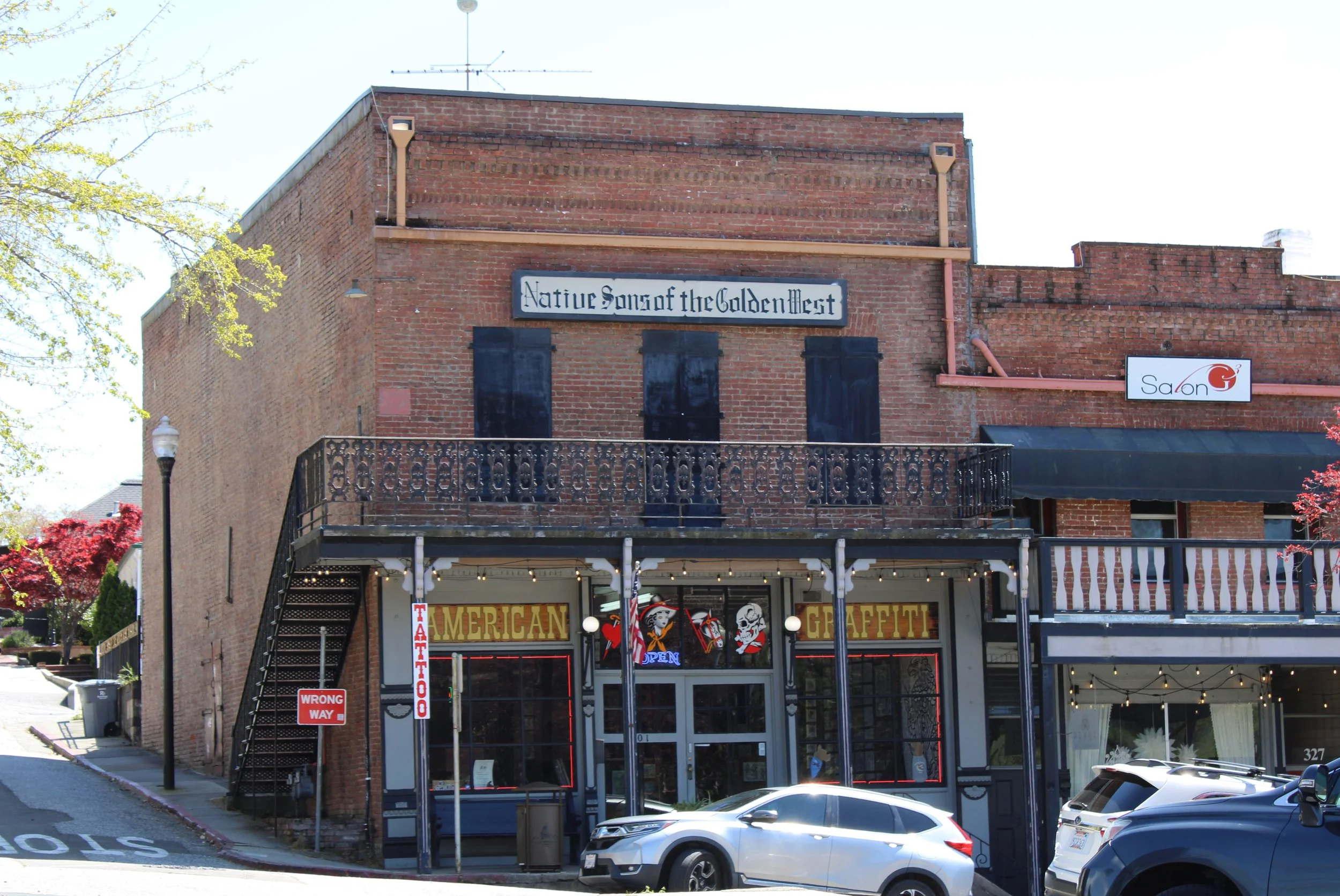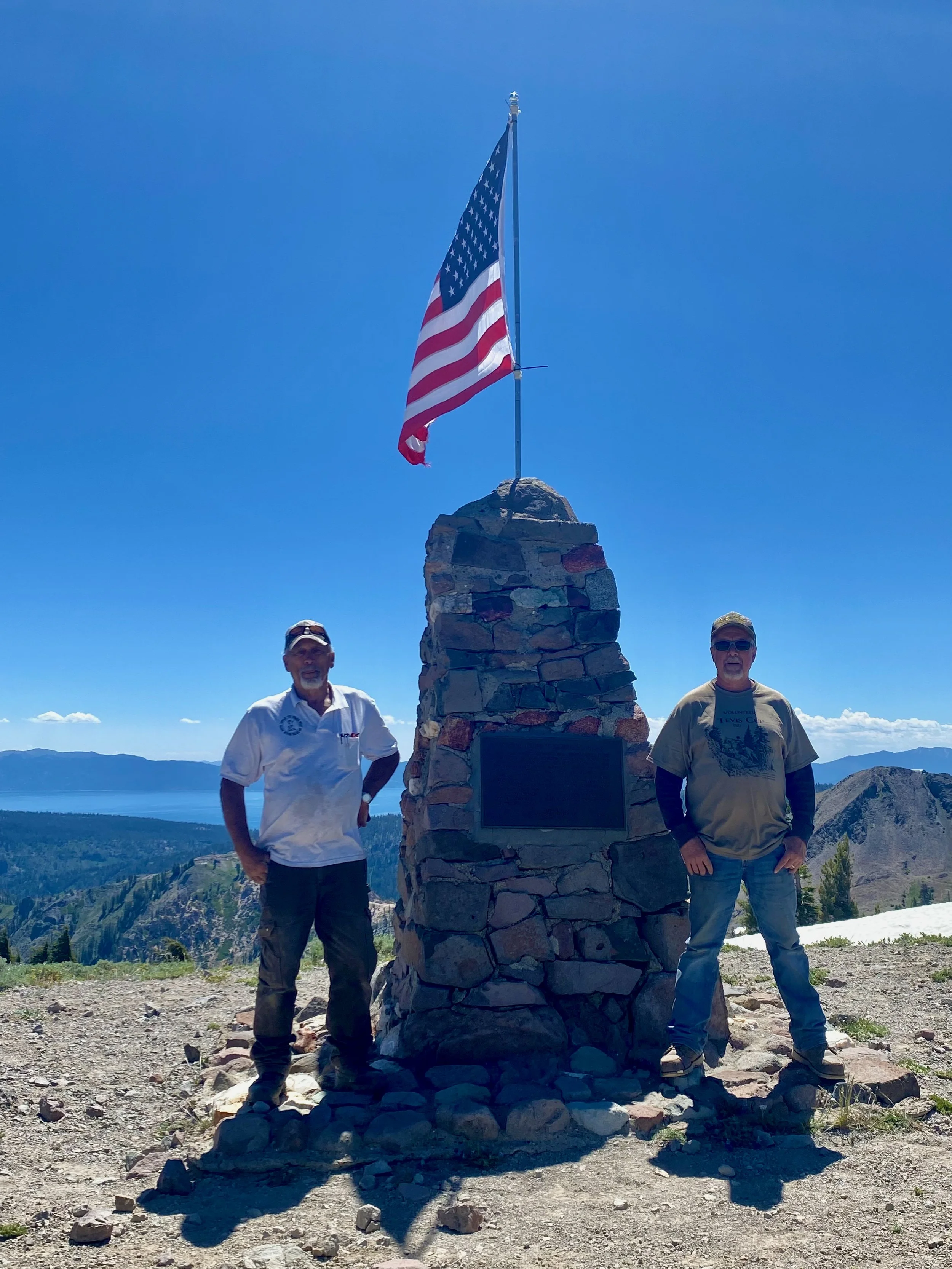The Native Sons of the Golden West - Auburn Parlor #59 By Christina Richter
Old Town Auburn is full of historic surprises. For example, there’s a building at 301 Commercial Street that was built in 1860, and it happens to be home to one of the oldest fraternal organizations in California: The Native Sons of the Golden West (NSGW). Commercial Street is also one of longest continually operating streets in Placer County.
The Auburn Parlor #59 of the Native Sons conducts their business on the 2nd story, and the space is perfect for this organization.
Parlor President Patrick Ferreira says that he joined the Native Sons because he loves the history, and he especially enjoys that it’s a very family focused group. Meeting at the historic 301 Commercial Street building has added to the allure.
The NSGW was founded in 1875 with the express purpose of preserving the history of California. The group achieves this goal by restoring historic sites, constructing monuments, dedicating historic structures, and creating events that honor our history.
The Auburn chapter was chartered April 4, 1885, just ten years after the organization was founded. In the years to follow the Native Sons collectively contributed to the restoration of Sutter’s Fort, construction of the Donner Monument and the Marshall Monument at Coloma, installed hundreds of historic plaques throughout the State, and achieved many other lofty accomplishments. Recently, local efforts included the dedication of the historic Chinese Cemetery in Auburn. A ceremony was performed at the cemetery on March 9, where an installed plaque, provided by NSGW Auburn Parlor #59, was unveiled.
One of the most ambitious and impactful projects occurred in 1931 when the Native Sons sponsored the effort to preserve and mark the old Placer County Emigrant Road through the Sierra Nevada. This road was originally created in 1852 to serve Gold Rush and other emigrants, as well as provide a link to the Comstock boom towns, such as Gold Hill, Silver City and Virginia City in Nevada. Before the 1931 effort the road was deteriorating and on the brink of being lost to time.
Robert Montgomery Watson was an integral part of this endeavor, and his 1931 monument still stands today. We now know this “road” as the Western States Trail, and the Watson monument serves as a marker at the start of both the Tevis Cup Ride and the 100-Mile Endurance Run. As a result of the Native Sons sponsorship, and Watson and crew’s diligence, a major part of our county’s legacy continues to play an important role.
There is a relevant quote that says “History is to the nation as memory is to the individual. As a person deprived of memory becomes disorientated and lost, not knowing where they have been or where they are going, so a nation denied its past will be disabled in dealing with its present and future.” (A. Schlesinger, Jr.)
The next time you’re in Old Auburn take a moment to walk on Commercial Street. As you reach the top of the 300 block, you’ll find yourself in front of the Native Sons of the Golden West building. When you’re there, perhaps pause for a bit to remember our history, and to express a silent ‘thank you’ for their work in helping to preserve our State and County’s incredible heritage.





